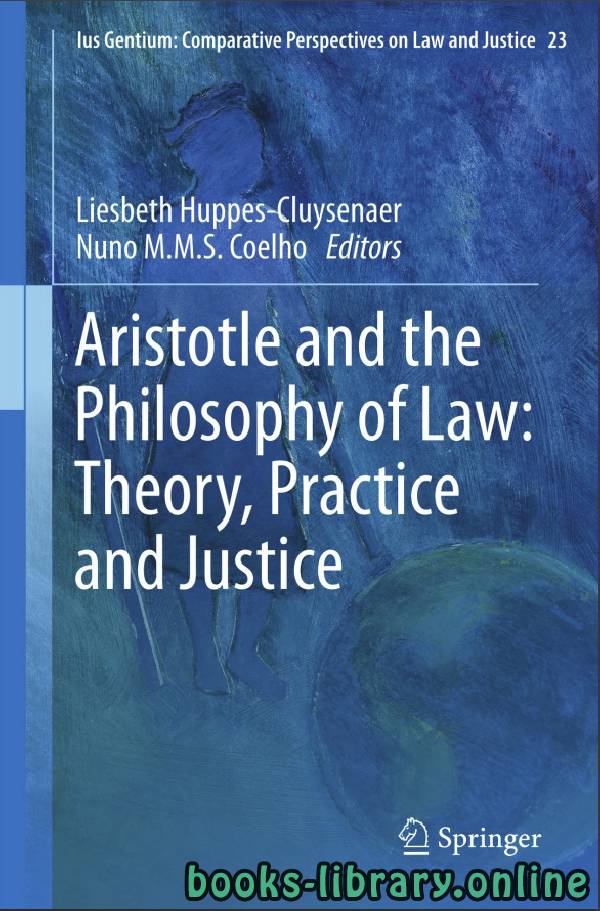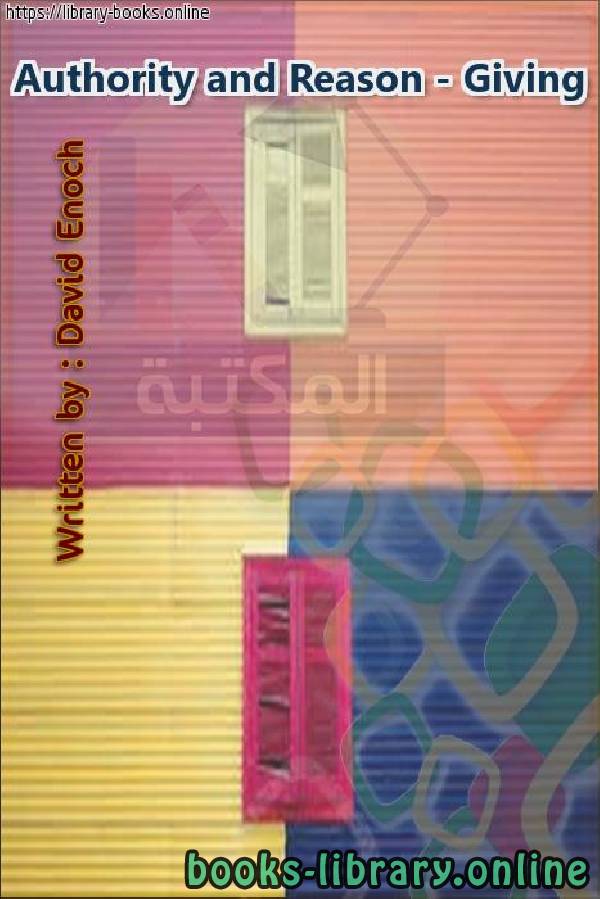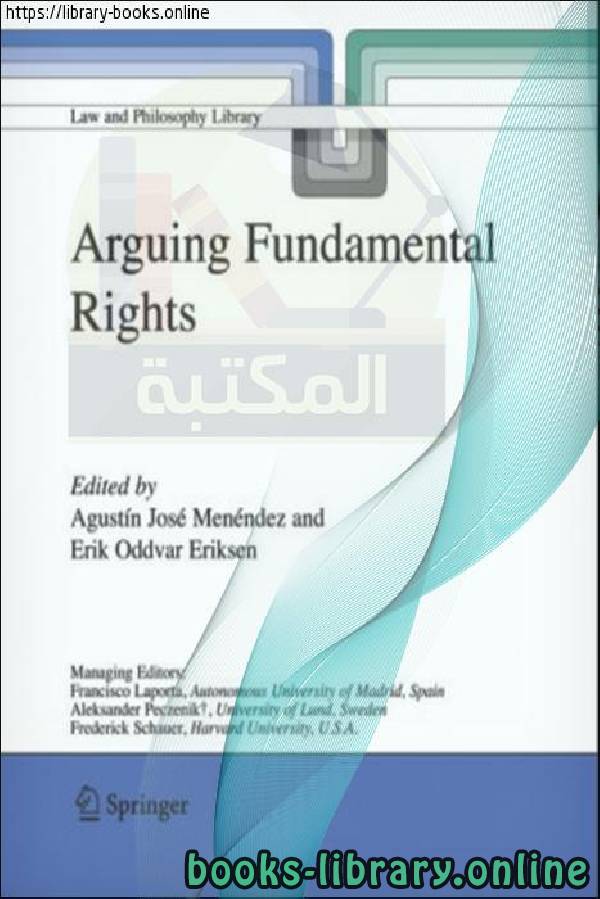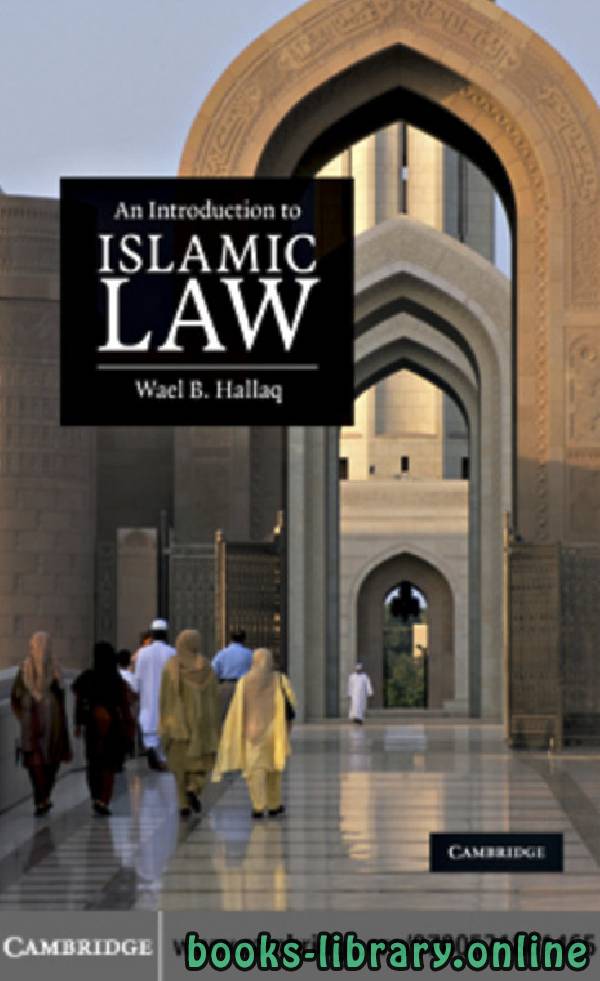كتاب Aristotle and The Philosophy of Law
:Book Description Aristotle is a key fi gure of legal and philosophical theory. The Western academic tradition is founded on his open dialogue to Sophists, Socrates and Plato. His concept of prudence ( phronêsis ) had quintessential meaning for Roman legal culture, and Aristotle has been present in legal theory ever since. For Aquinas he was the paradigm of the Philosopher, currently he is seen as the thinker who was the main opponent to the Enlightenment, and his writings are used consequently to challenge Modern ways of thinking وصف الكتاب : أرسطو هو مبدأ أساسي في النظرية القانونية والفلسفية. يرتكز التقليد الأكاديمي الغربي على حواره المفتوح مع السفسطين وسقراط وأفلاطون. كان لمفهوم الحكمة (phronêsis) معنى مثالي للثقافة القانونية الرومانية ، وكان أرسطو حاضرًا في النظرية القانونية منذ ذلك الحين. بالنسبة إلى الأكويني ، كان نموذجًا للفيلسوف ، ويُنظر إليه حاليًا على أنه المفكر الذي كان الخصم الرئيسي للتنوير ، وتستخدم كتاباته بالتالي لتحدي طرق التفكير الحديثة.ليسبيث هوبس - كلويسينير ، نونو إم. إم. كويلو - ❰ له مجموعة من الإنجازات والمؤلفات أبرزها ❞ Aristotle and The Philosophy of Law ❝ ❱
من كتب القانون باللغة الأنجليزية English Law Books - مكتبة كتب علوم سياسية وقانونية.

قراءة كتاب Aristotle and The Philosophy of Law أونلاين
معلومات عن كتاب Aristotle and The Philosophy of Law:
Aristotle is a key fi gure of legal and philosophical theory. The Western academic tradition is founded on his open dialogue to Sophists, Socrates and Plato. His concept of prudence ( phronêsis ) had quintessential meaning for Roman legal culture, and Aristotle has been present in legal theory ever since. For Aquinas he was the paradigm of the Philosopher, currently he is seen as the thinker who was the main opponent to the Enlightenment, and his writings are used consequently to challenge Modern ways of thinking
وصف الكتاب :
أرسطو هو مبدأ أساسي في النظرية القانونية والفلسفية. يرتكز التقليد الأكاديمي الغربي على حواره المفتوح مع السفسطين وسقراط وأفلاطون. كان لمفهوم الحكمة (phronêsis) معنى مثالي للثقافة القانونية الرومانية ، وكان أرسطو حاضرًا في النظرية القانونية منذ ذلك الحين. بالنسبة إلى الأكويني ، كان نموذجًا للفيلسوف ، ويُنظر إليه حاليًا على أنه المفكر الذي كان الخصم الرئيسي للتنوير ، وتستخدم كتاباته بالتالي لتحدي طرق التفكير الحديثة.
سنة النشر : 2013م / 1434هـ .
عدد مرات التحميل : 4868 مرّة / مرات.
تم اضافته في : الأربعاء , 15 يناير 2020م.
تعليقات ومناقشات حول الكتاب:
Most philosophical perspectives still assume Aristotle as their interlocutor. The
new epistemological perspectives in legal theory, which arose during the twentieth
century in connection to phenomenology and existentialism – for example philosophical hermeneutics, rhetoric, topics , theory of argumentation etc. – cannot be
conceived without their reference to Aristotle. The same is true for jurisprudence,
law and literature, contemporary natural law theories, legal pragmatism and virtue
ethics. One way or another, most of us deal with the same problems as Aristotle
faced and employ some of his theoretical tools to think these over.
In the fi eld of practical philosophy and law, Aristotle’s presence is even more
signi fi cant. There are examples of practical legal problems in the texts of Aristotle,
which are still used in exactly the same way in the major textbooks for students.
It is a moving experience to read in texts of more than 2000 years ago such phrases
on legal matters.
In legal theory, Aristotle is mostly discussed in the context of Legal Positivism
versus Natural Law. In these debates the ‘positivists’ parade as the slightly cynical
realists, who do not take refuge in vague and idealistic concepts, while the ‘natural
law’ followers accuse the positivists of being formalists. One could easily assume
that everything that could be said in this debate has been said already a hundred
times. However, the debate is so fundamental to legal thought that every relevant
change in society is re fl ected in a re-arrangement of the arguments of this debate.
At this moment in history, globalisation is clearly causing such a change in society. Ripple effects of actions spread nowadays extremely fast all over the world;
sometimes it is merely the fear for effects which creates a worldwide chain of
reactions. Is it possible to control these processes? It becomes clear how integrally
لا تزال معظم وجهات النظر الفلسفية تفترض أن أرسطو هو المحاور. ال
المنظورات المعرفية الجديدة في النظرية القانونية ، والتي نشأت خلال العشرين
قرن فيما يتعلق بالظواهر والوجودية - على سبيل المثال التأويل الفلسفي ، والبلاغة ، والموضوعات ، ونظرية الجدال وما إلى ذلك - لا يمكن أن يكون
تصور دون الرجوع إلى أرسطو. وينطبق الشيء نفسه على الفقه ،
القانون والأدب ، نظريات القانون الطبيعي المعاصر ، البراغماتية القانونية والفضيلة
أخلاق. بطريقة أو بأخرى ، يتعامل معظمنا مع نفس المشكلات التي يواجهها أرسطو
واجه ووظف بعض أدواته النظرية للتفكير بها.
في مجال الفلسفة والقانون العملي ، فإن وجود أرسطو هو أكثر من ذلك
كبير. هناك أمثلة للمشاكل القانونية العملية في نصوص أرسطو ،
التي لا تزال تستخدم بالطريقة نفسها بالضبط في الكتب المدرسية الرئيسية للطلاب.
إنها تجربة مؤثرة في قراءة هذه العبارات قبل أكثر من 2000 عام
في المسائل القانونية.
في النظرية القانونية ، يناقش أرسطو في الغالب في سياق الوضعية القانونية
مقابل القانون الطبيعي. في هذه النقاشات ، كان موكب "الوضعيين" بمثابة السخرية قليلاً
الواقعيين ، الذين لا يلجأون إلى مفاهيم غامضة ومثالية ، في حين أن ‘الطبيعية
أتباع القانون يتهمون الوضعيين بأنهم شكليون. يمكن للمرء أن يفترض بسهولة
أن كل ما يمكن أن يقال في هذا النقاش قيل بالفعل مائة
مرات. ومع ذلك ، فإن النقاش أمر أساسي للغاية للفكر القانوني أن كل ذات الصلة
التغيير في المجتمع متأثر بإعادة ترتيب حجج هذا النقاش.
في هذه اللحظة من التاريخ ، من الواضح أن العولمة تسبب مثل هذا التغيير في المجتمع. آثار تموج الأفعال المنتشرة في هذه الأيام سريعة للغاية في جميع أنحاء العالم ؛
أحيانا يكون مجرد الخوف من الآثار هو الذي يخلق سلسلة من العالم
تفاعلات. هل من الممكن السيطرة على هذه العمليات؟ يصبح من الواضح كيف متكاملة
 مهلاً !
مهلاً !قبل تحميل الكتاب .. يجب ان يتوفر لديكم برنامج تشغيل وقراءة ملفات pdf
يمكن تحميلة من هنا 'تحميل البرنامج'

نوع الكتاب : pdf.
اذا اعجبك الكتاب فضلاً اضغط على أعجبني و يمكنك تحميله من هنا:


كتب اخرى في كتب القانون باللغة الأنجليزية English Law Books
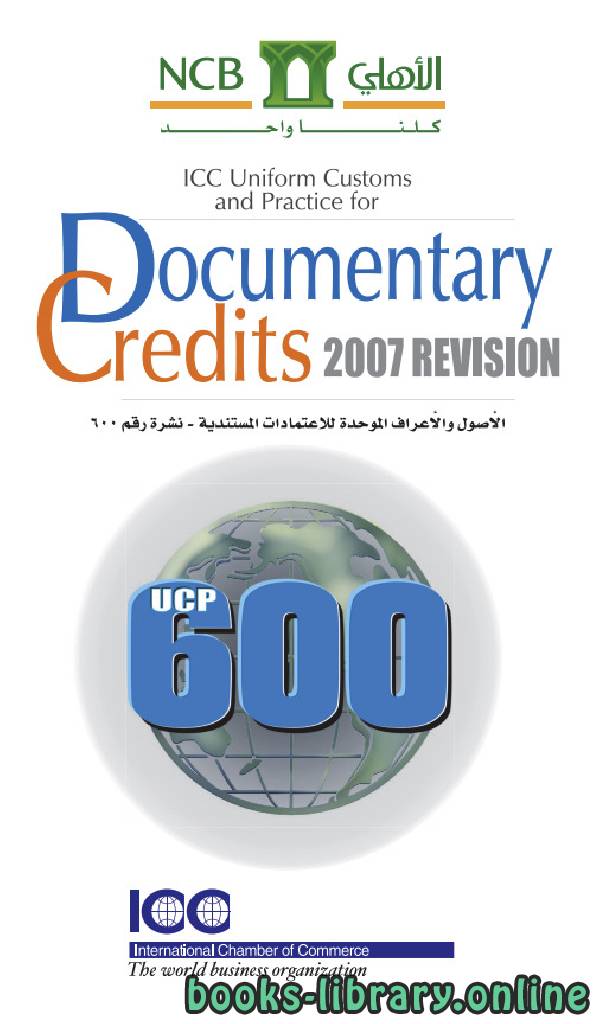
الأصول والأعراف الموحدة للاعتمادات المستندية - نشرة رقم 600 PDF
قراءة و تحميل كتاب الأصول والأعراف الموحدة للاعتمادات المستندية - نشرة رقم 600 PDF مجانا
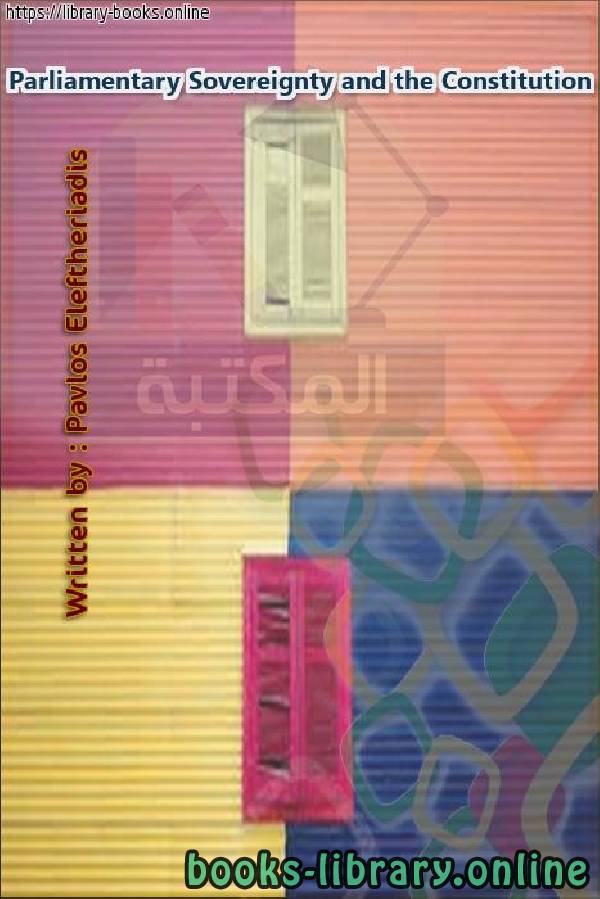
Parliamentary Sovereignty and the Constitution PDF
قراءة و تحميل كتاب Parliamentary Sovereignty and the Constitution PDF مجانا
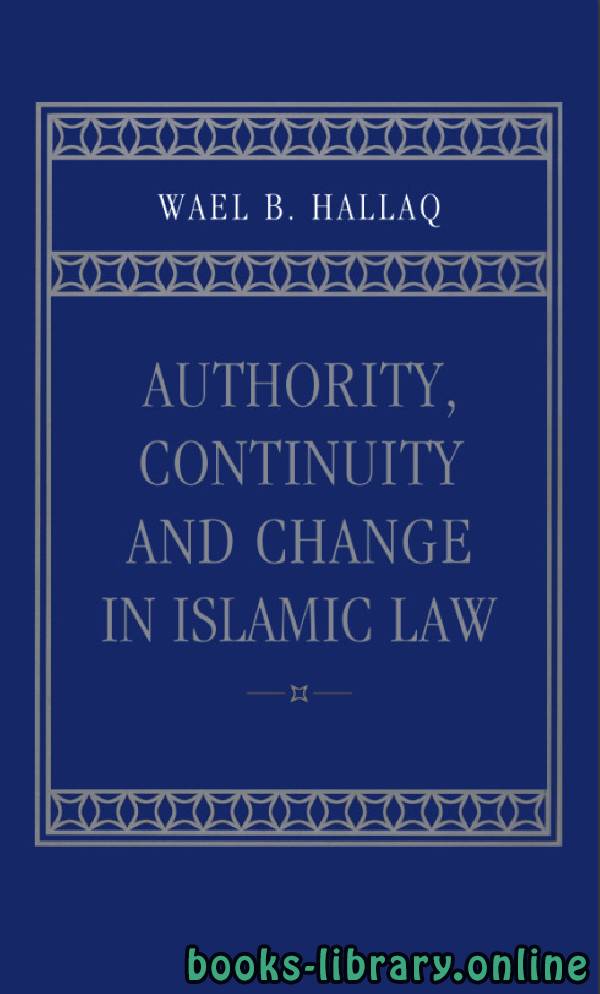
AUTHORITY, CONTINUITY AND CHANGE IN ISLAMIC LAW PDF
قراءة و تحميل كتاب AUTHORITY, CONTINUITY AND CHANGE IN ISLAMIC LAW PDF مجانا

Are Rules Exclusionary Reasons in Legal Reasoning PDF
قراءة و تحميل كتاب Are Rules Exclusionary Reasons in Legal Reasoning PDF مجانا
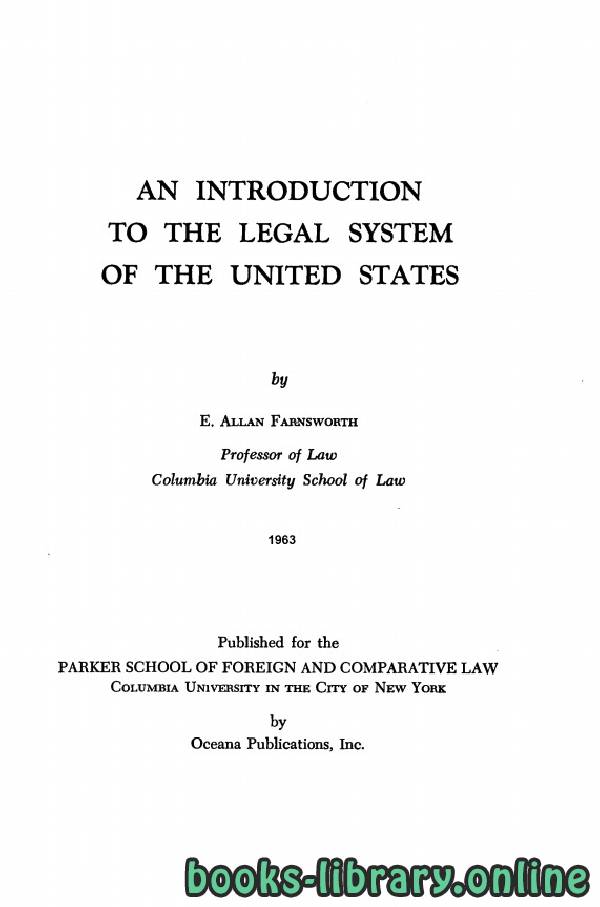
an introduction to the legal system of the united states PDF
قراءة و تحميل كتاب an introduction to the legal system of the united states PDF مجانا
